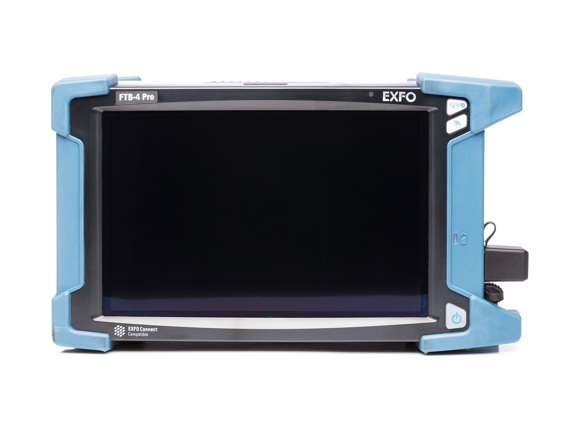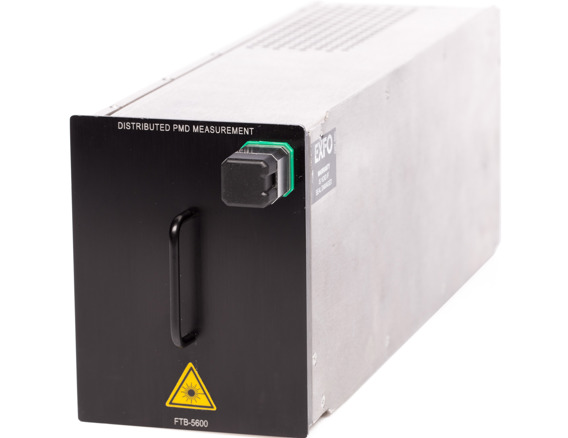Descripción
New market reality requires a new CD/PMD testing approach
The high-speed networking market has been trying to reconcile two conflicting objectives: deliver the faster data rates—10G, 40G and 100G—demanded by subscribers, and keep OPEX down to maintain profitability. Most network operators are well on their way to achieving the first objective, thanks to new fiber deployments and new technology advances such as coherent detection, DPSK/DQPSK and ROADM-based mesh networks.
However, the additional field work—installation, activation as well as the greater dispersion granularity now required—can push operation expenses in the wrong direction. These new requirements force operators to retain the services of more field crews, potentially reducing the average expertise level of technicians and increasing the rate of repeat jobs.
In a nutshell, network operators must absorb more CAPEX to equip their additional technicians, and even more importantly, they must absorb more truck rolls and OPEX.
The good news is, the aforementioned technology advances are making next-generation high-speed networks increasingly tolerant to dispersion, shifting the focus of the test instrument toward built-in intelligence, simpler setups and automated test sequences that generate results that are immediately accurate. EXFO’s FTB-5700 was designed to deliver exactly that, adding an exclusive, game-changing feature—single-endedness, which in itself dramatically cuts truck rolls. The FTB-5700 is a lightweight unit that:
- Enables single-ended testing, market-exclusive feature
- Allows one technician to test both CD and PMD
- Offers a fully automated, highly intelligent interface—no training required
- Minimizes manual intervention, for fail-safe results
- Reduces required connections to just one
- Leads to faster time-to-revenue
The only single-ended PMD and CD analyzer on the market
Combining PMD and CD into one test solution that enables technicians to characterize multiple links from a single location, the FTB-5700 is built specifically for today’s high-speed network reality. Its highly intelligent interface and functionalities ensure that test parameters are automatically optimized, whatever the link.
Additional key features:
- Groundbreaking single-ended testing technology reduces both the testing time and operational expenses (OPEX)
- Highly robust technology for underground and aerial fiber
- Network recognition: unit automatically adopts the proper parameter setups
- Link-length measurement
- Complies with ITU G.650.3 fiber testing standard and FOTP-243 and FOTP-175B standards
Chromatic dispersion testing in raman deployments
Raman is now an integral part of most coherent system deployments. To optimize Raman gain and efficiency, the fiber type of the effective area must be known. While it is known in most greenfield deployments, the same cannot be said for brownfield. When in doubt, the fiber type can be determined using the FTB-5700: lambda zero, CD slope and coefficient at 1550 nm. The FTB-5700 is uniquely positioned to take these measurements, and since it is single-ended, you will save on OPEX. Plus, the unit will calculate the fiber length for an accurate slope and coefficient measurement.
Single-ended testing: driving OPEX down in a hurry
In typical dual-ended dispersion testing scenarios, a technician has to be present at each fiber end. EXFO’s single-ended solution speeds up the process in two ways. First, engineer A does not have to wait for engineer B to arrive at the other end of the link with the light source. And second, fibers can be tested in multiple directions, turning a job that could take hours into one that takes minutes while reducing truck rolls and OPEX.

Typically, single-ended testing allows full network characterization in 66% less time than any other traditional test method. Here is the impact on truck rolls for the mesh network illustrated above:
Test type: end-to-end
Number of technicians: 2
Total number of truck rolls: 19
Test type: single-ended
Number of technicians: 1
Total number of truck rolls: 6
In this case, 68% less truck rolls. In addition to driving down OPEX, fewer truck rolls also mean faster delivery of new services—for faster time to revenue.













